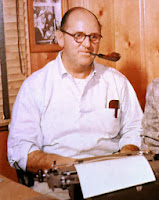Elvis was inducted into the U.S. Army in Memphis, Tennessee, on March 24, 1958. He then spent three days at the Fort Chaffee, Arkansas, Reception Station.
After nearly 3 years of service, he left active duty on March 5, 1960 while at Fort Dix, New Jersey. He received his formal discharge from the Army Reserve on March 23, 1964.
While serving in the Army, Elvis was a member of Company A, 2d Medium Tank Battalion, 37th Armor between March 28-September 17, 1958 and was stationed at Fort Hood, Texas. This is where he completed both his basic and advanced military training.
From October 1, 1958-March 2, 1960, Elvis was a member of the 1st Medium Tank Battalion, 3d Armor, based in Germany, mostly in the battalion's Headquarters Company in Friedberg, Germany.












